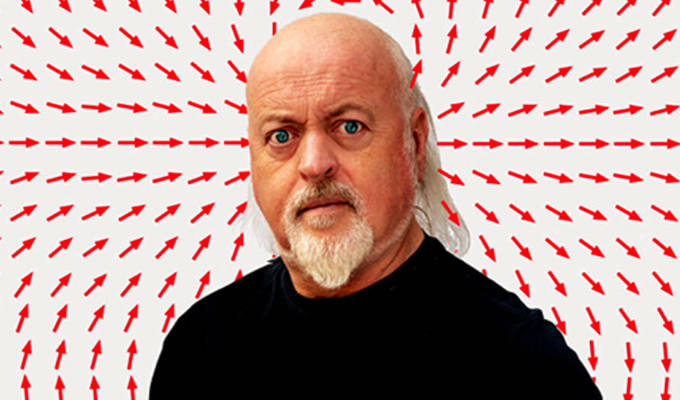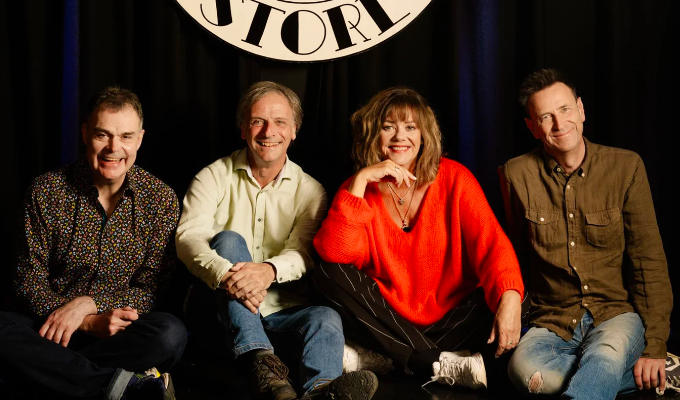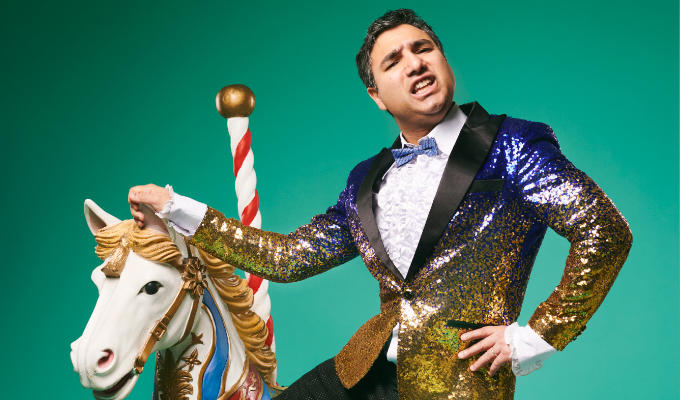Freedom of speech? The line's in the right place
Dave Cohen holds his nose and steps over to the dark side
The imprisonment of Matthew Woods for putting sick jokes on Facebook, and the community service sentence given to Azhar Ahmed for saying ‘all soldiers should die and go to hell’ has understandably brought an energetic response from comedians and comedy writers. We’re all getting a little bit anxious about what we think we can and can’t say.
Like most people I know, I read Liam Mullone’s impassioned and erudite article here in favour of their freedoms of speech, and agreed with every word. But then something happened, I don’t know how, or why, but a little nagging voice in my head began to argue with this premise, and before I knew it, I found myself at odds with his piece, and all the other pieces I’ve read on the subject this week. There’s nothing more annoying than finding out you concur with all the people you have spent 30 years crossing the road to avoid.
It’s partly to do with my gut reaction when I see and hear everyone agreeing with my own viewpoints and prejudices. If everyone’s saying the same thing, even the mavericks who I nearly always end up siding with, then who’s putting the other side? But mainly it’s to do with the fact that comedians are getting themselves all worked up with questions about where to draw the line, a line which looks very clear to me.
It certainly seemed a lot easier to draw that line in the early days of new comedy, where much of what we see now on TV or live originated. In the 1980s, there was a clear delineation between what you could say to an audience in a pub or theatre and what you could say on TV.
The same applied to comedy writing. I’ve written here before about how shocked people would be if they could hear what professional comedy writers come up with when they’re sitting together in a room. But in the Eighties, that was where that stuff stayed. The frequently stated phrase ‘that joke was for the room’ meant ‘it’s not going in the script’.
What followed was Margaret Thatcher’s deregulation of the television industry, just at the time that TV executives like Janet Street Porter and Bob Geldof were ‘discovering’ stand-up. In the early 90s a slew of scrappily thought out, lazily formatted TV shows featuring raw stand-up crept into the schedules, mainly into late night Channel 4 and BBC2. With the rise of the new cable channels, the advent of BBC Three, plus Channel 4’s increasing pressure to move away from its public service remit and become more ‘edgy’, the lines began to blur around what could be said and where.
And of course this fragmentation accelerated hugely with the arrival in quick succession of YouTube, Facebook and Twitter. Even a stand-up has to wait until the evening before he can try out his hilarious new child abduction gag on a live audience. Thanks to Twitter and Facebook a writer can put the joke out there the moment it has left his or her brain – which of course is part of the problem.
The argument always cited against censorship is ‘you can’t legislate, because different things offend different people’. But in the vast majority of cases, it’s actually really really easy to distinguish whether or not your joke is offensive. Are you joking about sections of society who are weak, or displaced, or demonised or discriminated against? If the target is the disabled, or ethnic minorities, or chavs, or rape victims, or feminists, or abducted children the answer is a clear yes. Or are you joking about people who are strong, who own our world, rule it or police it? Then the answer is no.
Last week’s high profile cases suggested to me that the law, after due consideration, acted properly. The sick jokes, posted purely to cause offence, got a jail sentence: the opinions expressed against soldiers, strongly felt but not gratuitous, got community service. The jail sentence sounds harsh and Woods was unfortunate to have been singled out, but perhaps others will think before going public with jokes that in the past were kept hidden away.
What we’re seeing right now is the law attempting to catch up with these incredibly swift changes. The Paul Chambers case, otherwise known as the Twitter Joke Trial, may have been an expensive waste of taxpayers’ money and should arguably never have been brought – nevertheless it has helped to clarify how far the Police should go, and has also helped some people to think twice before tweeting something that could be taken very badly.
The notion I read somewhere else, that parrot lovers might now be allowed to prosecute Monty Python, is not inconceivable, but we all know that this will not happen, because common sense won’t permit it.
Some have argued that Frankie Boyle will have to change his ways, but nearly all of his jokes are targeted specifically against those in power. In fact he usually only gets into trouble when he steps over that line, being sexist or joking about children with disabilities. I would imagine if any high profile comedian should be concerned about these developments, it’s more likely to be Jimmy Carr.
It clearly pains those people who support freedom of speech to stand up for the rights of comedians to tell rape jokes, but if misogyny was treated by comedy promoters in the same way as racism (and I’ve never understood why it isn’t), then comedians would just have to stop telling them.
I’m sure if I wanted I could search out acts or clubs where racist jokes still thrive, but the jokes have been largely eliminated over the last 25 years and I’d say we’re better for it. It wasn’t a case of repressing freedom of speech, just promoters forcing lazy comedians to come up with different material or not play those clubs.
Self-censorship can be a terrible thing. It happens in repressive regimes, and it happens every day at the BBC, where according to some reports a topical comedy show last week wasn’t allowed to do, or decided against covering the Jimmy Savile story. But in the instances cited above, will self-censorship harm the work of comedians and writers? Will the world be a more repressive place if jokes about child abduction and rape are consigned to the same place as jokes about race?
I’m curious to find out.
Published: 14 Oct 2012






